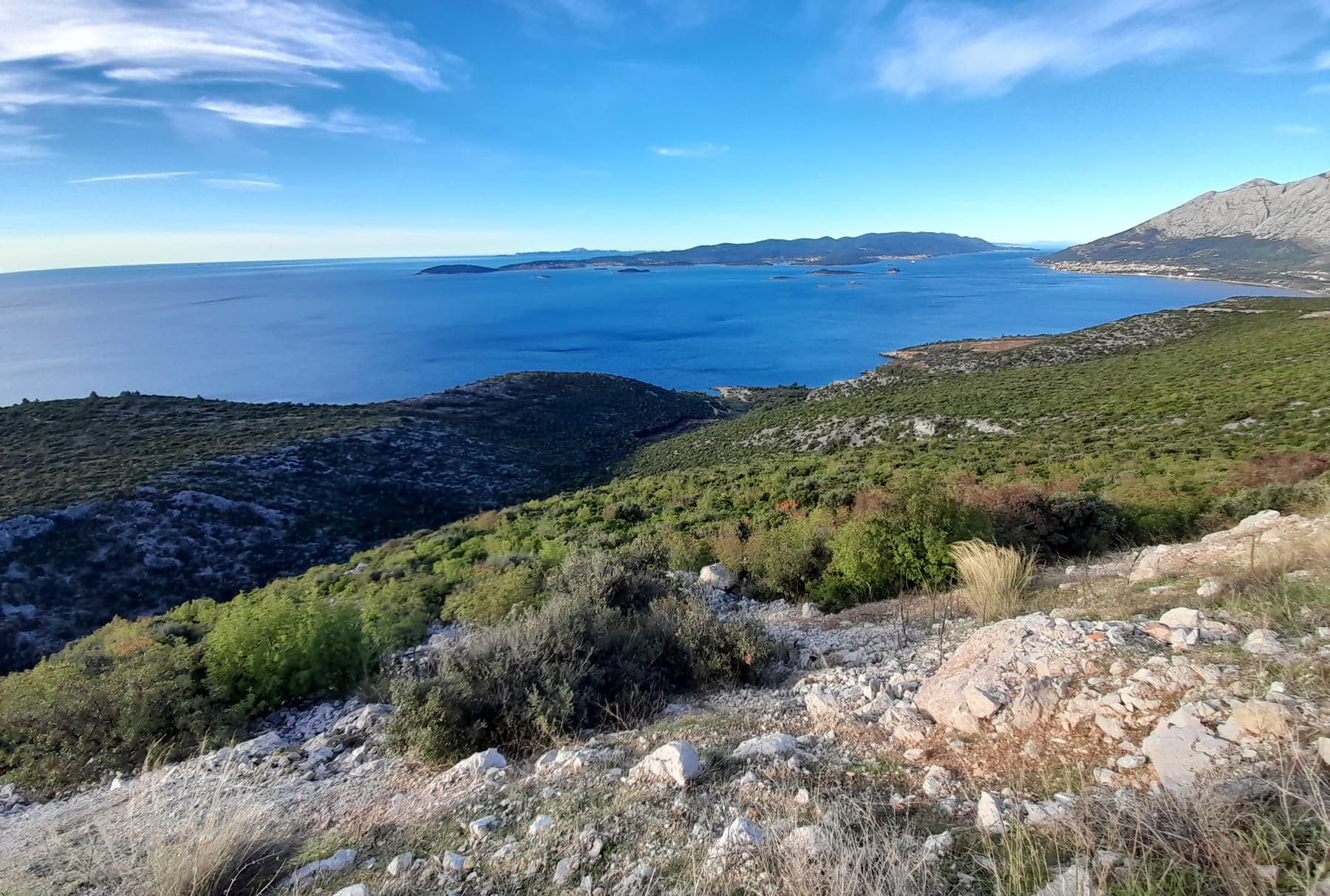Centre for Landscape Policy Notes
These policy briefing notes summarise the landscape policy implications and recommendations of projects carried out by Newcastle University researchers and collaborators.
Long-term vegetation change can inform landscape management in UK uplands
Evidence from Alston Moor, North Pennines
This research project considered long-term vegetation change in upland environments both prior to, and in response to human activity. Such understandings are crucial to inform planning and decision making around woodland creation and landscape management, and to ensure species will thrive and be self-sustaining. The (pre)historic impact of past industrial activity, especially mining, was also traced through pollution signals Contact. Dr Eline van Asperen
Download: Policy Brief Alston Moor
TerraSAgE: Terraces as Sustainable Agricultural Environments
Sustaining soils, mitigating climate impacts, supporting identities.
This research project investigated historic terraces as sustainable landscapes, revealing how terrace systems have impacted positively on landscape management over the long term. Project lead. Prof. Sam Turner
Download: Policy Brief TerraSAgE
PLAS: Pastoralism and Sustainability in Aspromonte
Understanding the past to plan for the future.
The research presented here investigates the complex systems involved in pastoral land management in the mountain area of Aspromonte in Calabria, Italy. Project Coordinator Dr Francesco Carrer
Download: Policy Brief PLAS
Options for the Commercial Management of Small-Scale Farm Woodland
This policy note summarises opportunities for famers to commercially manage woodland. It was produced based on research by Dr Jeremy Franks and Dr Marion Pfeifer, School of Natural and Environmental Sciences, Newcastle University.
Download: Policy Brief Woodland Management
Border Arts: Preserving and Celebrating Intangible Dance Heritage in Contested Borderscapes
This research examines how Hispanic dance, including choreographed dance works, codified techniques, and traditional danced stories, provide social-cultural benefits to borderland communities and cities, and are important tools in facilitating inclusive border discourse. To realise their potential, the benefits of dance as intangible cultural heritage must be better understood and integrated into policy. This note is based on a Newcastle University funded ‘Fellowship in Landscape’ titled: “Choreopolitics in the Borderland”. It was produced by Dr Charlotte Veal with the support of El Paso Ballet Theatre.
Download: Policy Brief Dance Heritage
An Introduction to Urban and Peri-Urban Forestry
This research highlights how urban and peri-urban forests provide significant benefits to cities and their inhabitants and are an important tool in climate change adaptation and mitigation. To offer these benefits, urban forests must be well managed, with flexible approaches, stakeholder engagement and regular review processes. The note was produced based on a course titled ‘An introduction to urban and periurban forestry’ produced for the FAO elearning academy by Clive Davies and Lotte Dijkstra, Newcastle University
Download: Policy Brief Urban Forest
The Dissonance Between Old and New Industrial Landscapes
Centrally-led local industrial restructuring and the emergence of new industrial landscapes
This study examines how central government-led industrial restructuring can lead to the creation of disconnected industrial landscapes. The use of industrial heritage can help to conserve regional identity, thereby ensuring more contextually relevant transformations. The policy note produced based on research conducted by Dr. Jungsuk Woo
Download: Policy Brief Industrial Landscape
The Spatial MBTI Landscape Approach to De-population Mitigation
This research introduces a regional diagnostic funding system to better understand and address depopulation challenges. By analysing demographic trends, spatial characteristics, and economic factors, the research proposes customised policy solutions that reflect each region's unique needs. This policy note is the result of collaborative work by past and present PGRs from the Schoolof Architecture, Planning, and Landscape at Newcastle University (Minki Sung, Dr Sung-nam Park, Dr. Jeongeun Chae and Dr. Byungchoon Hwang) with funding support for this research from the Architecture & Urban Research Institute.
Download: Policy Brief MBTI Landscape Policy
Soundscapes For Well-Being
These policy recommendations stem from research by Dr Usue Ruiz Arana which puts forward a conceptual framework of embodied affectivity that emphasises listening in landscape planning, design and management and advances new ways of knowing that expand prevailing visual and humancentred ones. The research has been published as a book on Urban Soundscapes (Ruiz Arana, 2024) that invites landscape professionals to become soundscape architects and offers practical advice applicable to reading landscapes and intervening on them for multispecies communities.
Download: Policy Brief Soundscape
Listening to Energy Transition: How Soundwalks Reveal Tensions in Aberdeen’s Energy Transition Development
Using soundwalks, this project has drawn attention to the slow processes of sonic enclosure—that is, the way that sound travels through and occupies space—which negatively impact residents and contribute to tensions around energy transition developments. This policy note was produced by William Otchere-Darko, based on research led by Gisa Weszkalnys (LSE) with project team consisting of Maja Zećo (University of Aberdeen), William Otchere-Darko (Newcastle University) and Freelance Curator Rachel Grant.
Download: Policy Brief Energy Transition
Shenzhen’s Residential Housing Landscape to Address Housing Inequalities
This policy note is based on the research of Tiancheng Ren, a PhD researcher in the School of Architecture, Planning and Landscape. His work focuses on China’s Reform era, housing policy, the adaptive reuse of industrial heritage, and the evolving housing landscape in China. This study highlights the significant roles of Shenzhen’s three major residential types, which reflect both mainland China’s economic achievements and the deepening of social inequality. To more effectively manage this dual process — of increasing overall societal wealth while reducing inequality — it is crucial to reassess the city's developmental trajectory. This requires examining the evolution of relevant policies over time and evaluating their impact on the formation and transformation of these residential spaces.
Download: Policy Brief Housing Landscape
The policy notes were produced by the authors with the assistance of Minki Sung (Centre for Landscape Policy Intern 2024-25) and Dr Eleanor Harrison (Centre for Landscape Policy Intern 2023-2024).
The project was led by Centre for Landscape Co-Directors Prof. Maggie Roe and Prof. Sam Turner, with Dr Charlotte Veal and Dr Maria Duggan, and supported by the NUCoRE (Newcastle University Centres of Research Excellence) QR-Policy Support Fund.
